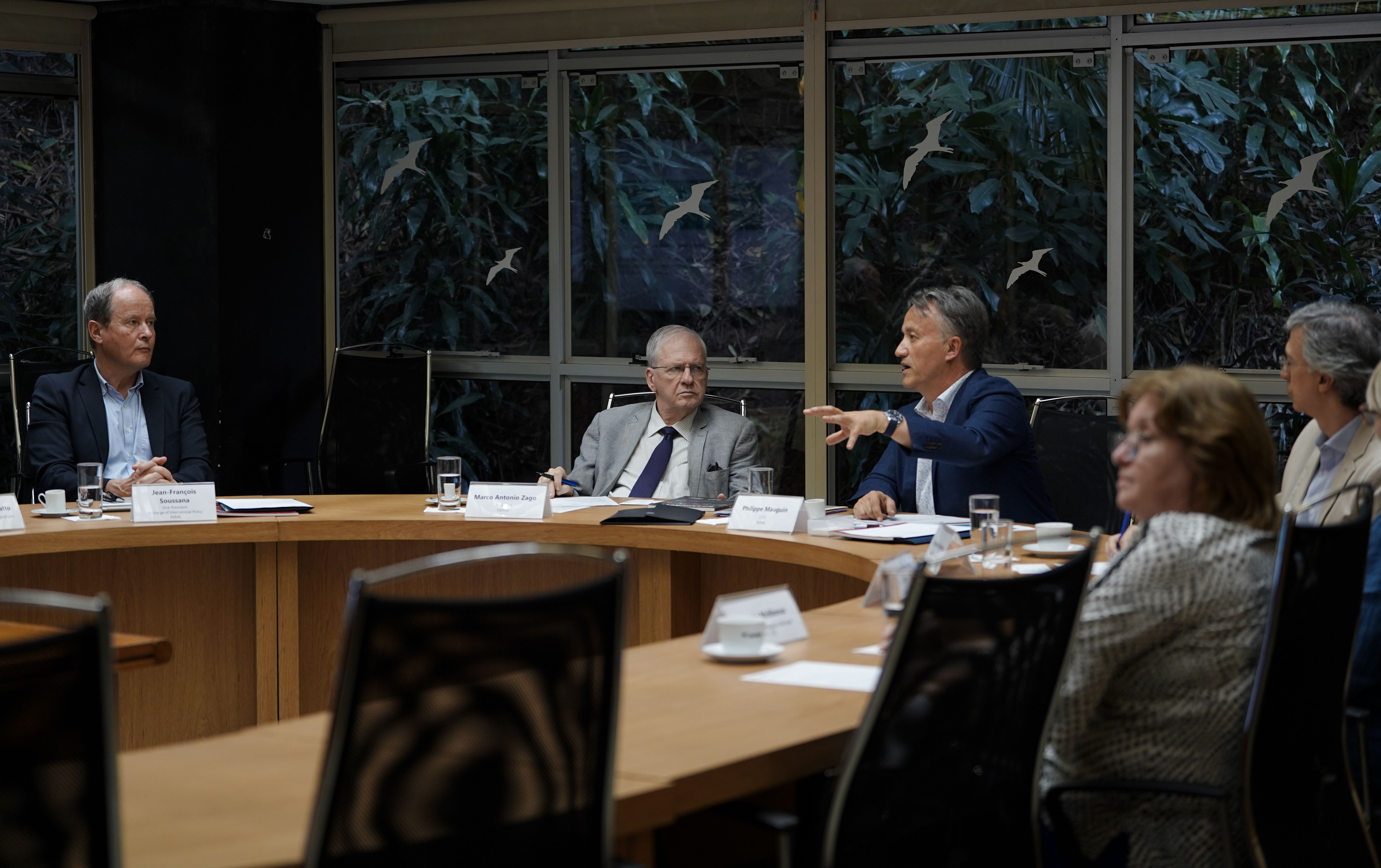Reading time 7 min
MACS-G20 in Brazil: INRAE and its Brazilian partners strengthen their research collaboration to meet the challenges of climate change and global food security
Published on 17 May 2024

Meeting of the G20 Agricultural Chief Scientists in Brasília, organised by Embrapa, INRAE's counterpart in Brazil
INRAE CEO Philippe Mauguin and INRAE vice-president of international research policy Jean-François Soussana attended the G20 2024 Agricultural Chief Scientists meeting in Brasília from 15 to 17 May, organised by Embrapa, INRAE's second partner in Brazil after the University of São Paulo. Each year, the MACS-G20 enables its members, ministerial representatives and agricultural research organisations, to discuss the agricultural research systems and development prospects of the G20 countries, in order to formulate recommendations ahead of the ministerial meetings and the G20 summit. In 2024, the fight against hunger, poverty and inequality, climate change and the reform of global governance are the three priorities set by the Brazilian presidency of the G20.
Philippe Mauguin took the opportunity to speak about the urgent need to speed up international scientific collaboration in the face of global climate impacts, at a time when dramatic floods have been hitting the states of Rio Grande do Sul and Santa Catarina in southern Brazil since April.
"Faced with extreme climatic events, the scientific community in France and around the world is increasingly developing research and innovation programmes on crop and livestock adaptation, the preservation of soil and water resources, and early warning systems. French research institutions are already involved in numerous global partnerships and international research initiatives dealing with these issues with multiple partners around the world."
Philippe Mauguin
Silvia Massruhá, president of Embrapa (Empresa Brasileira de Pesquisa Agropecuária), and Philippe Mauguin signed the renewal of the framework cooperation agreement between the two institutes on the sidelines of the meeting. This agreement confirms the excellence of the international collaborations conducted since 2018 under the previous agreement, and will enable them to be continued and strengthened. It provides for scientific and technological cooperation in the fields of agriculture, livestock, forestry, the environment and natural resources, with the aim of increasing existing knowledge in the field of sustainable development. Embrapa has officially joined the Soil Carbon International Research Consortium (IRC), launched in 2023 by the ORCaSa project as part of the European Union's Soil mission and coordinated by INRAE. Embrapa’s research teams are already involved and contributing to the IRC.
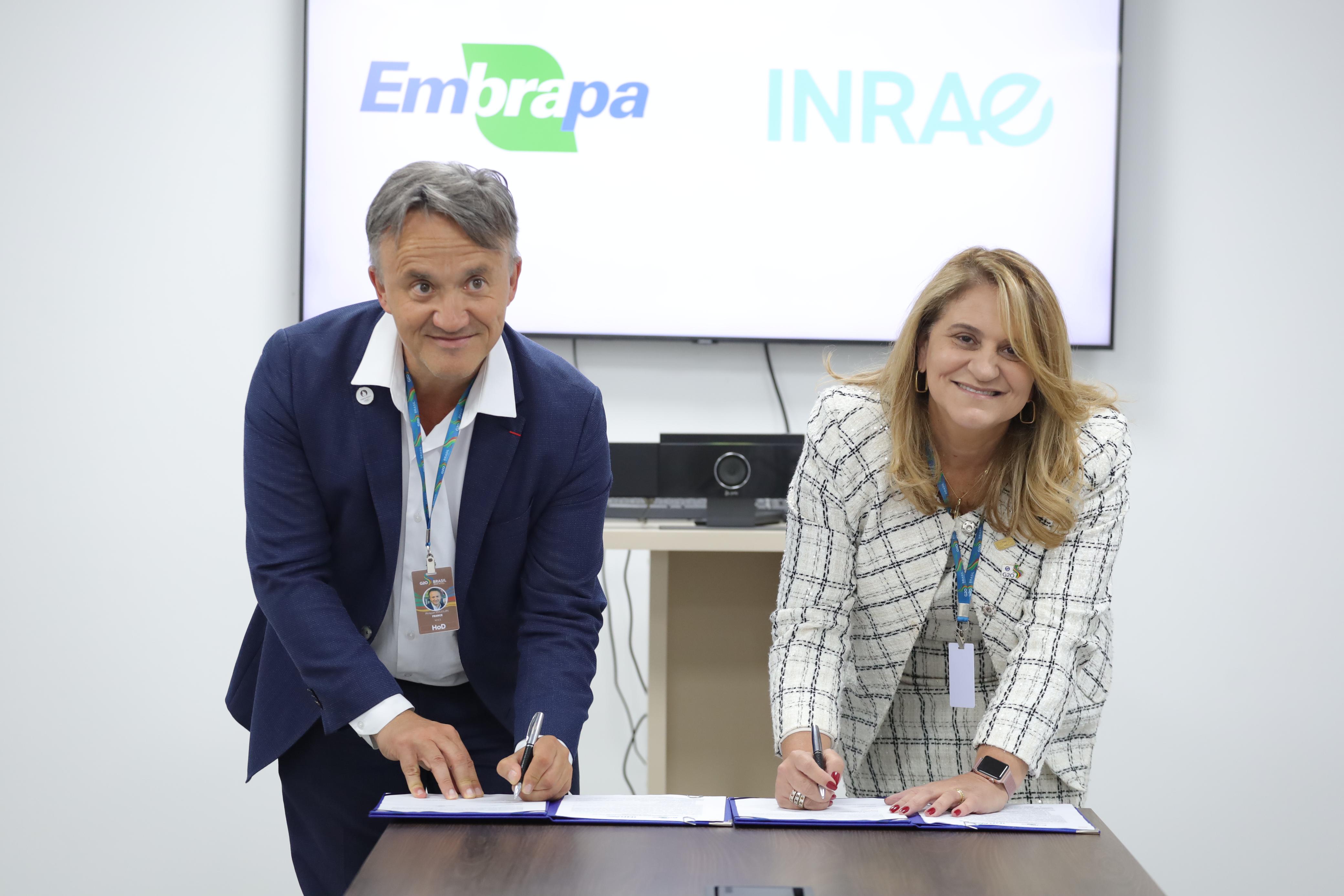
Dynamic collaborations open up future research prospects for INRAE at the University of São Paulo
The University of São Paulo, one of Brazil's largest universities, is INRAE's leading partner in Brazil in terms of co-publications with almost 300 joint publications between 2017 and 2022 in the fields of food, ecology, the environment and plants. A meeting organised with the Luiz de Queiroz College of Agriculture (ESALQ) and several faculties highlighted the dynamic collaborations between the two institutes. The renewal of the framework agreement between the University of São Paulo (USP) and INRAE strengthens bilateral cooperation in the fields of agriculture, food and the environment.
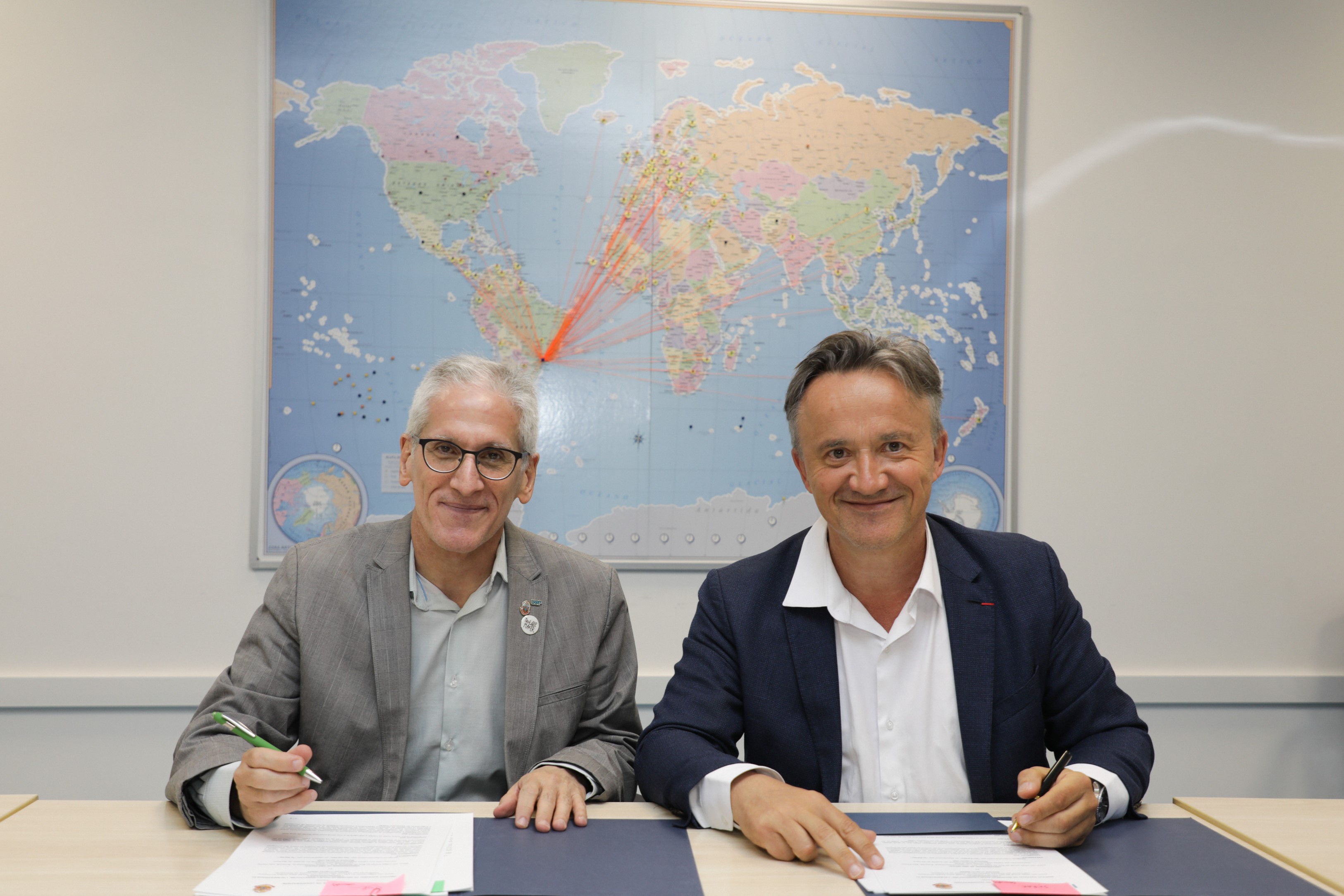
This meeting was also an opportunity to initiate, through a letter of intent signed with ESALQ-USP, the creation of an international associated laboratory (LIA) on biological interactions affecting plant health. It will involve INRAE, academic partners in France and the entomology and acarology department at ESALQ-USP.
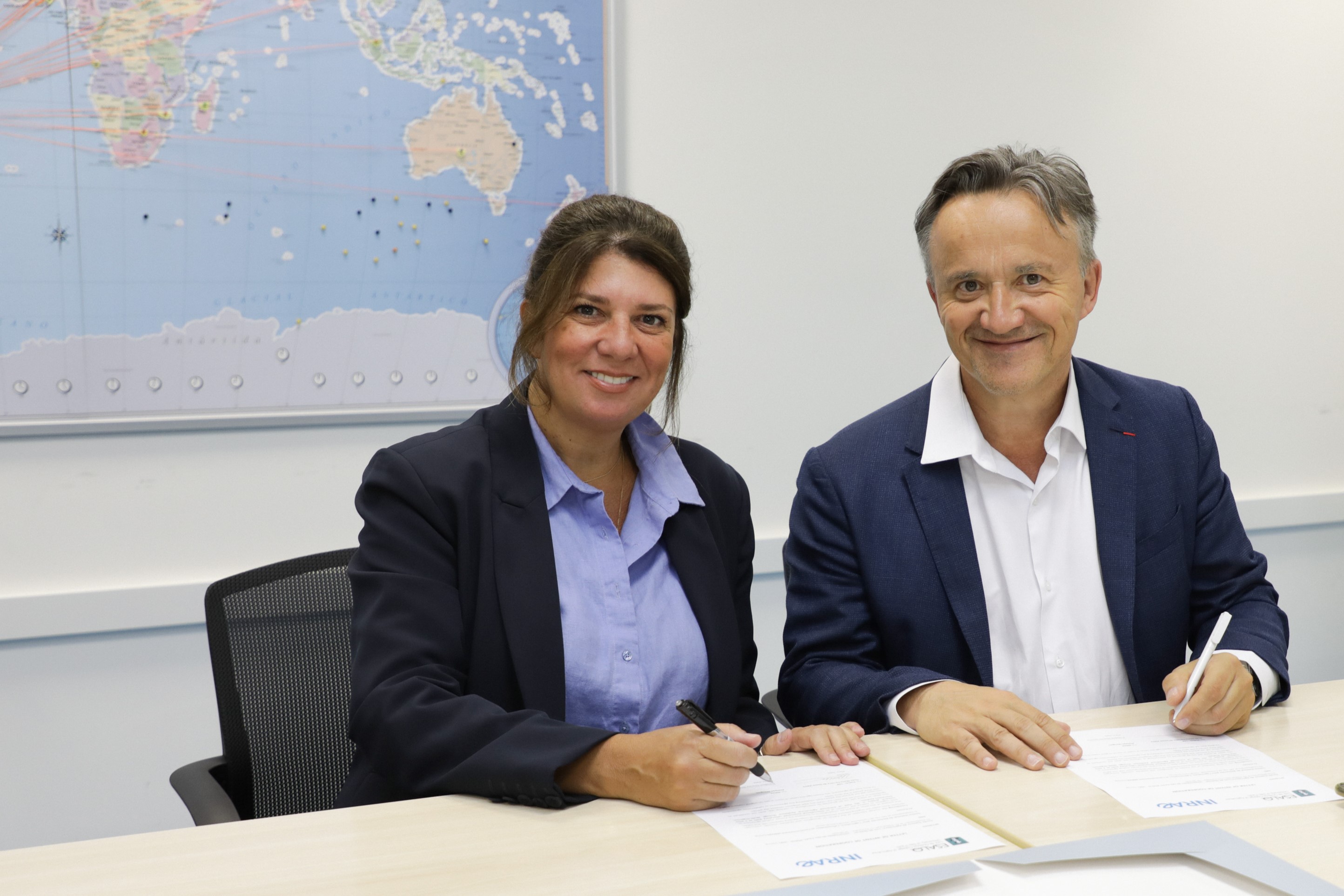
Future collaborative projects in Brazil could be initiated on the basis of these constructive exchanges, notably on biocontrol and carbon sequestration in agricultural soils, currently being studied by USP in the CCarbone project and developed internationally by the Soil Carbon IRC.
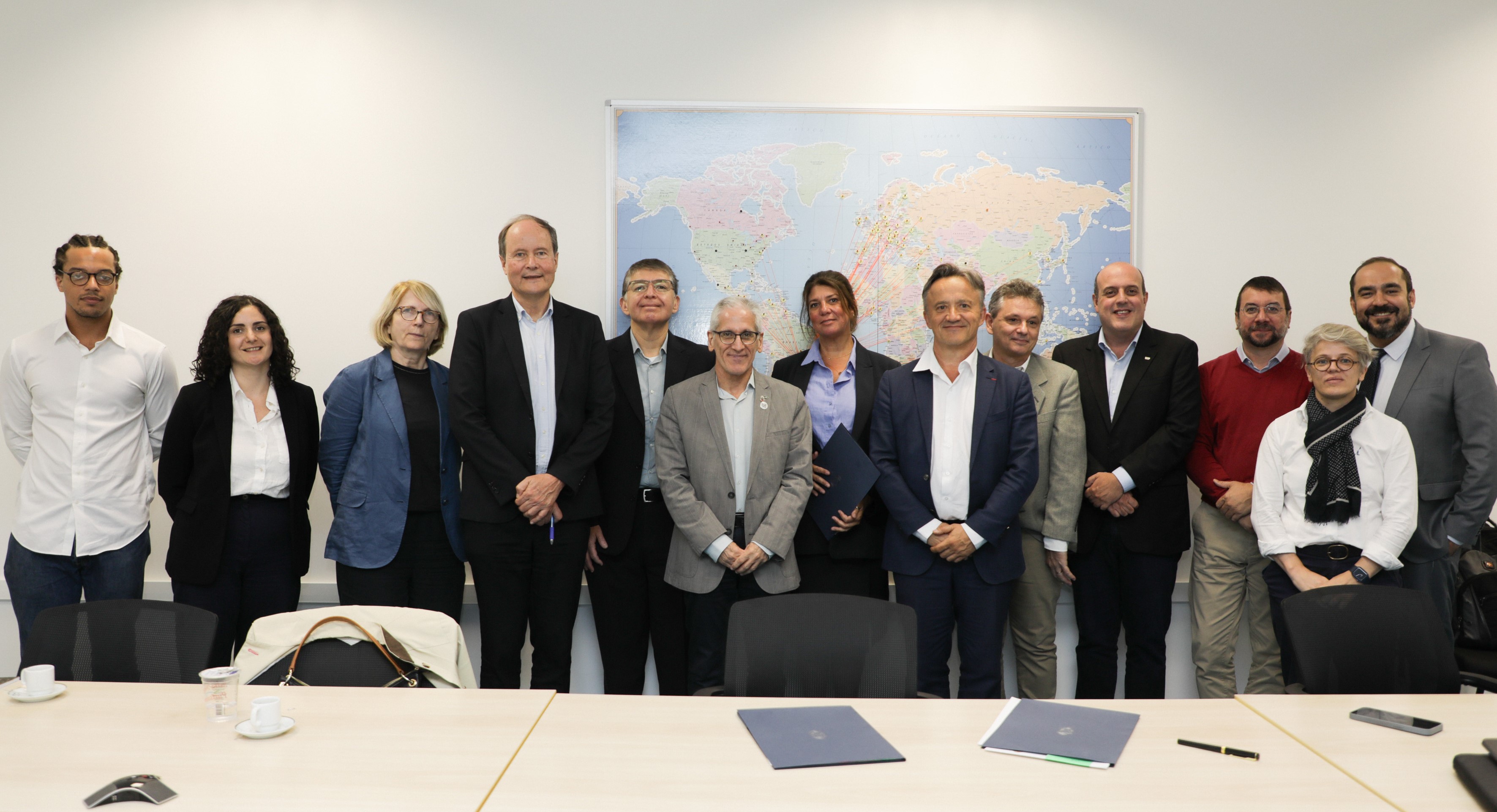
Formalisation of an international partnership between the public University of São Paulo and INRAE
A first cooperation agreement was signed between INRAE and the public University of São Paulo (UNESP), a major co-publication partner in Brazil for INRAE and one of the largest universities in Brazil, with 34 faculties spread over 24 cities in the state of São Paolo. This agreement formalises existing bilateral cooperation in the fields of agriculture, plant and animal sciences, food and the environment. It will enable the organisation of scientific mobility, the setting up of joint research projects and cooperation instruments, as well as joint participation in international research and training programmes, in close collaboration with INRAE's French academic partners, namely universities and schools.
UNESP and INRAE work together through their participation in broader international initiatives such as PREZODE, for the prevention of the emergence of zoonotic diseases, initiated by CIRAD, INRAE and the IRD, now bringing together 250 members on every continent. They also participate in the QUALYFOOD Global Alliance, alongside partners in Chile, Australia and the United States. These joint participations could be extended to other initiatives such as the bioeconomy with the Global Bioeconomy Alliance and the monitoring and preservation of tropical forests with the One Forest Vision initiative.
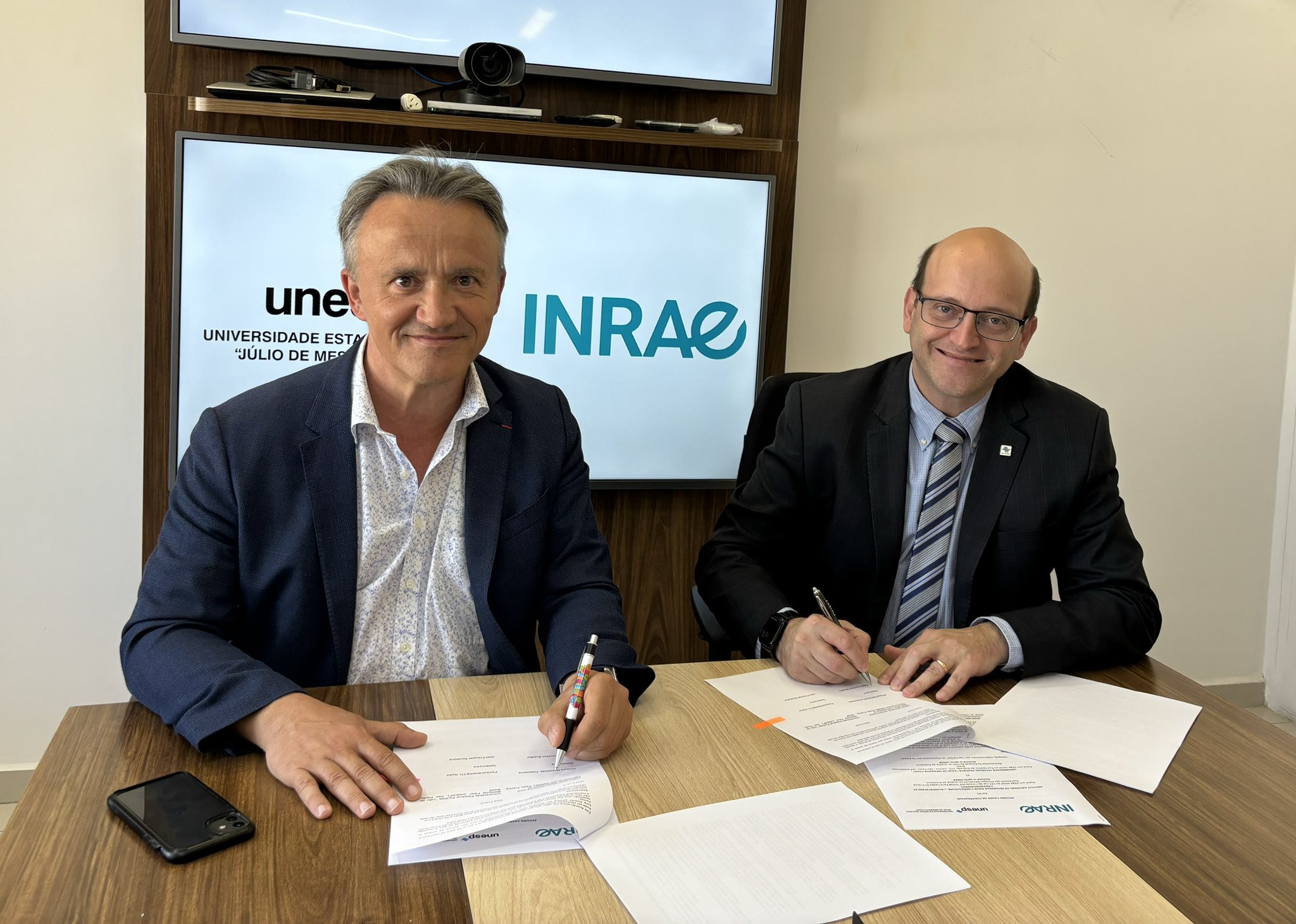
Meeting with the public São Paulo Research Foundation (FAPESP)
The mission of FAPESP, a public foundation funded by the taxpayer in the state of São Paulo, is to support research projects in higher education and research institutions in all fields of knowledge. A meeting with the INRAE delegation highlighted the intensity of INRAE's collaboration with partners in the state of São Paulo, as evidenced by the extensive cooperation conducted with UNESP and the Faculty for Public Health (FSP), and hence the strong potential for future cooperation with FAPESP.
Five areas of cooperation were identified: carbon sequestration in soils; the digital transition in agriculture; fermentation, the prevention of emerging animal diseases and the preservation of tropical forests through Amazon + 10, which brings together the foundations of the Amazonian states, including French Guiana.
